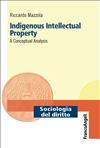
This article takes on Ignasi Terradas’ latest book La justicia más antigua (2019) in the attempt to conceptualize "vindicatory justice" through a formalization - inspired by Theodor Geiger’s Vorstudien zu einer Soziologie des Rechts - of its fundamental notions and principles. This study identifies (I) three key concepts constituting an essential lexicon of vindicatory justice: (I.i) offense, (I.ii) defenselessness (I.iii) composition; and (II) three basic principles underlying vindicatory justice: (II.i) principle of universal answerability (PUA) (II.ii) principle of reconciliation (PR) (II.iii) principle of ancillary vengeance (PAV).
